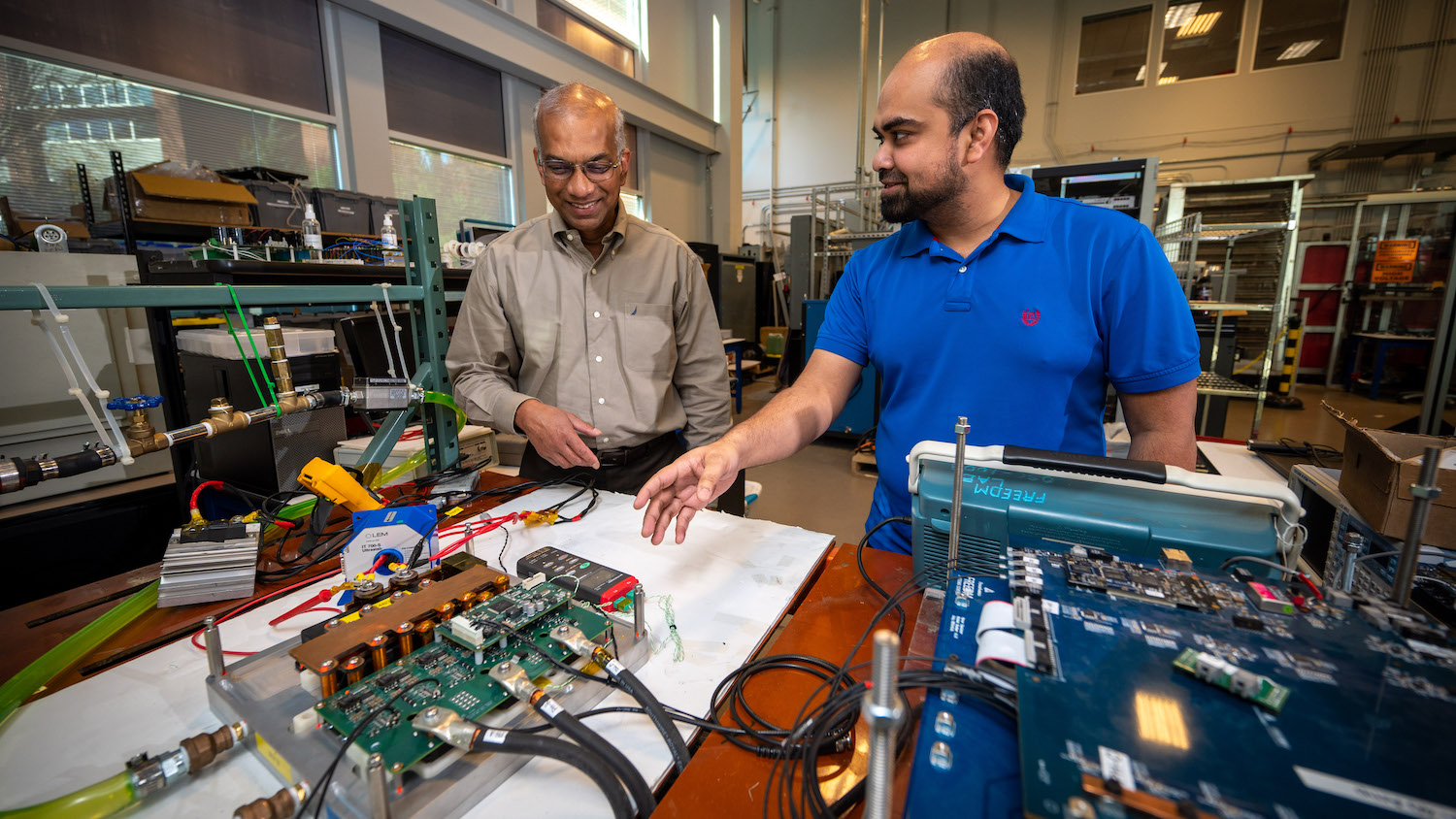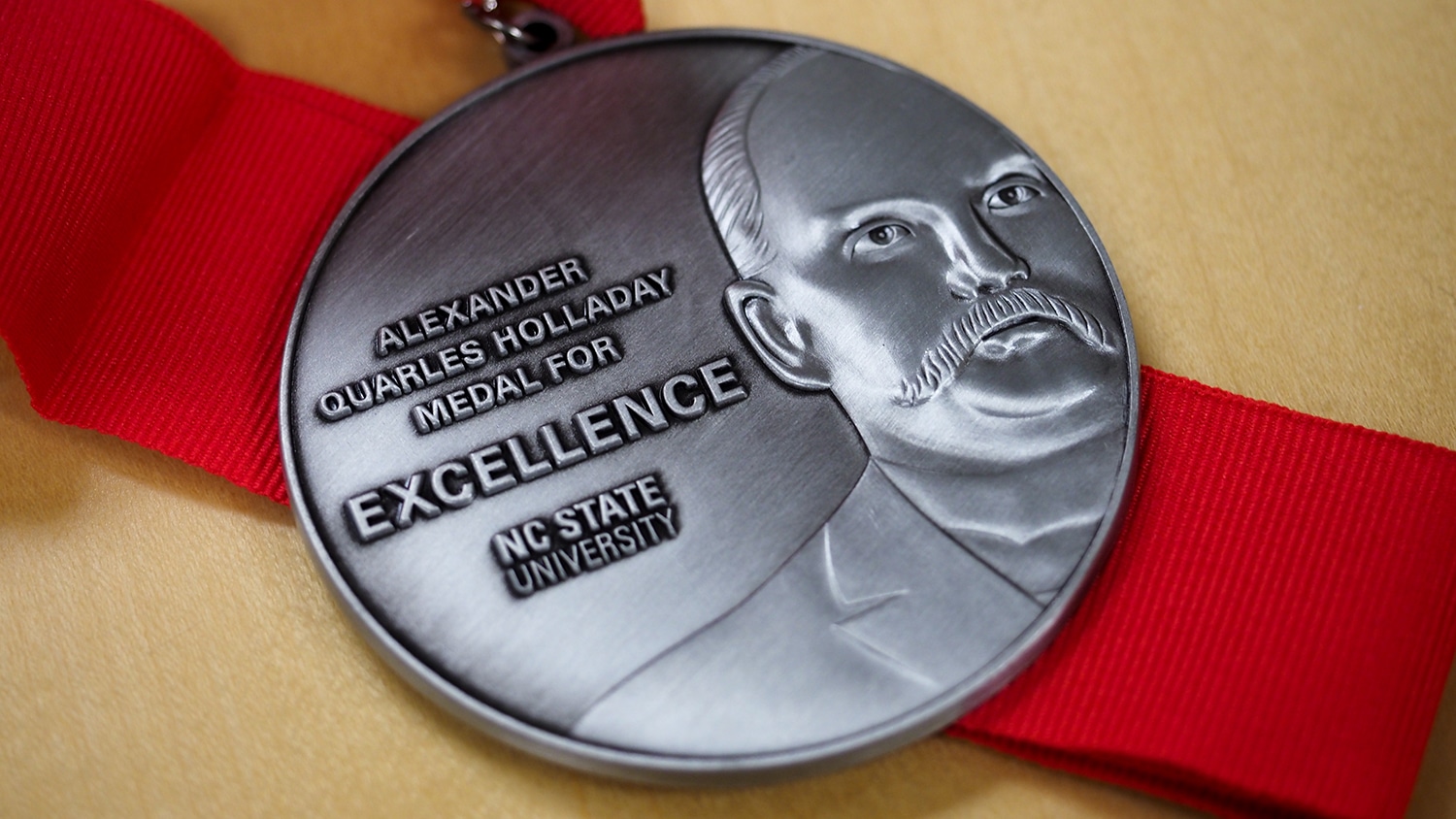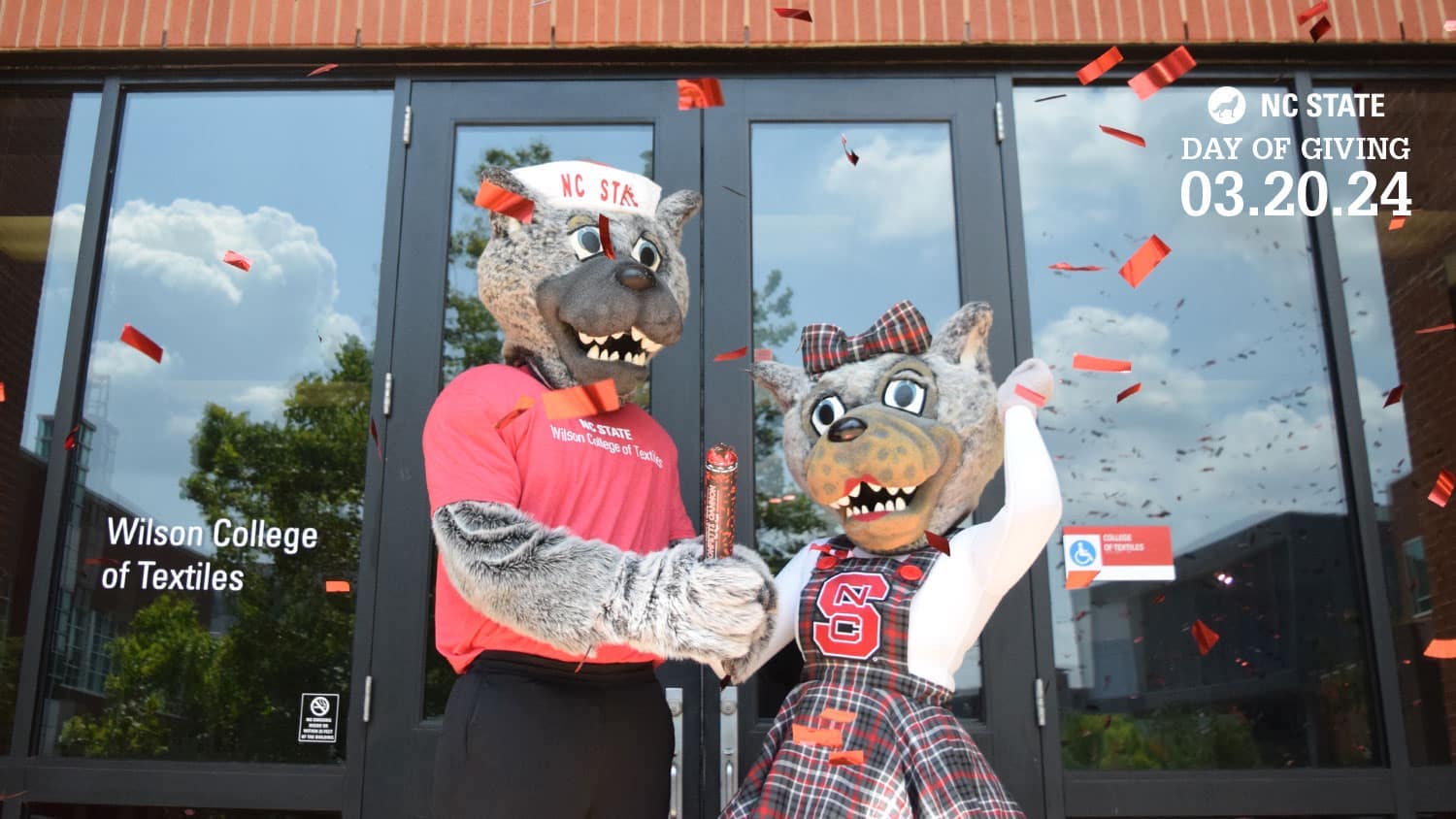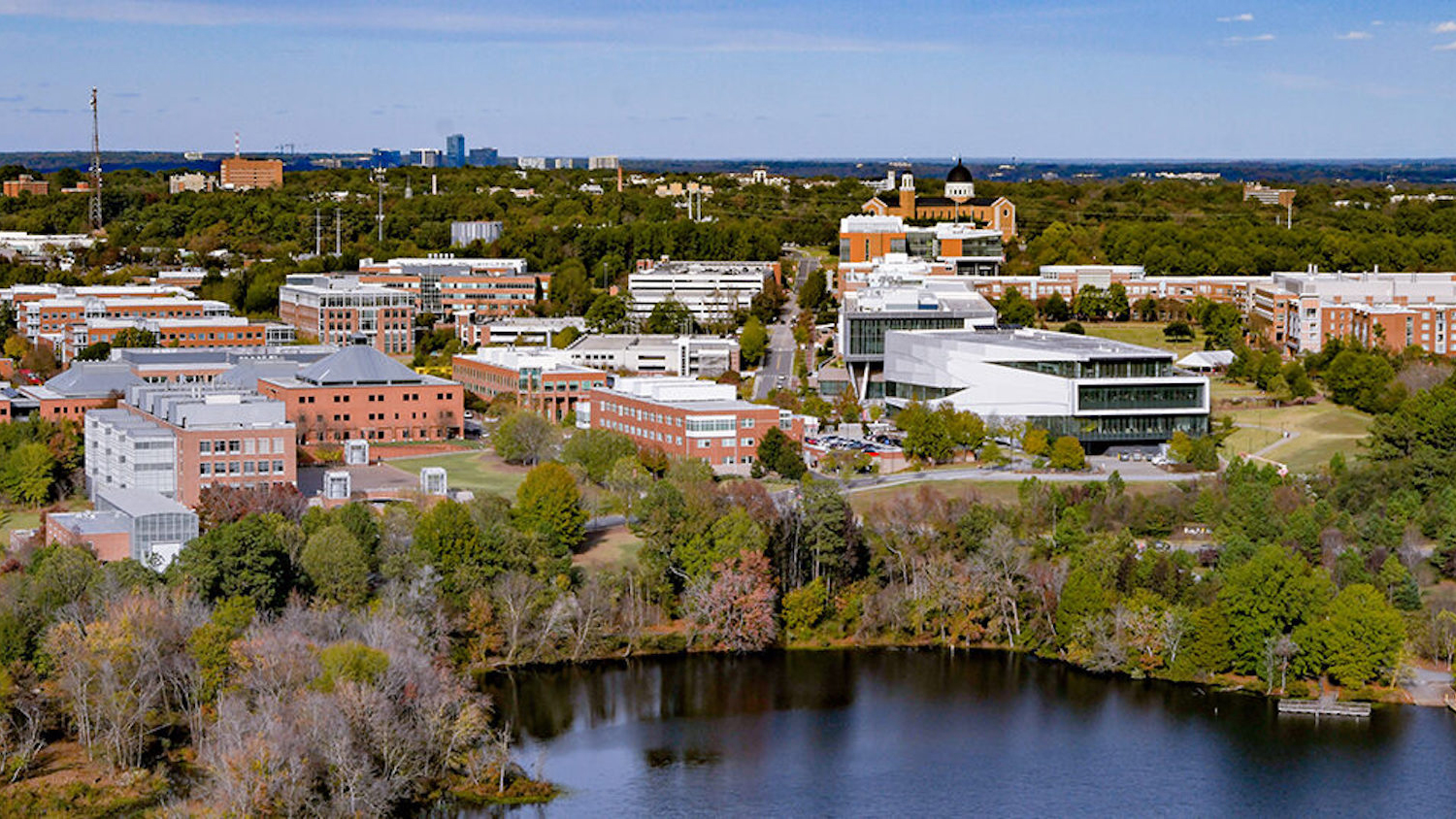Providing FREEDM Through a Better Power Grid
Iqbal Husain, director of NC State’s FREEDM Systems Center and a distinguished professor in the College of Engineering, is on a mission to make the world cleaner, greener and easier to travel in.

Ask the average person about hybrid and plug-in vehicles, and they will tell you these automobiles represent some of the most cutting-edge technology available today. For Iqbal Husain, who has spent his career researching ever-better ways to build electric machines, they are actually a mature industry.
Husain is not trying to reinvent the proverbial wheel with another Tesla or Rivian. His goal is to improve the grid these kinds of vehicles rely on in order to spread green energy farther and faster.
Private financial support, which helps fuel Husain’s work in the College of Engineering, is proving invaluable in that effort.
Looking Back
Husain came to NC State in 2011 after serving as a faculty member at the University of Akron for 17 years. Before that, he graduated from the Bangladesh University of Engineering and Technology with a bachelor’s degree, and from Texas A&M University with a master’s and a Ph.D., all in electrical engineering.
Teaching and conducting research at NC State was the natural progression for this expert on electric machines. Husain’s work focuses on the transportation, automotive and aerospace industries — electric vehicles, in particular. While his time at the University of Akron certainly advanced his research in these important areas of study, he ultimately chose to join the Wolfpack because of the additional resources NC State could offer.
“Working in Akron, I was very close to the automotive industries in Indiana, Michigan and Ohio,” Husain said, “but the University of Akron … was limiting in some situations. NC State provided me with the opportunities and collaborations to expand my research and take it to another level.”
A distinguished professorship is one of the primary ways NC State provides Husain with those next-level opportunities.
Husain was named the Department of Electrical and Computer Engineering’s first ABB Distinguished Professor in 2012. The professorship, made possible by a gift the year before from global power and automation technology group ABB, was the perfect fit for Husain, as the company is one of the world’s largest power grid suppliers.
Since then, ABB’s professorship has given Husain the seed funding to help create prototype machines, publish his findings in peer-reviewed journals and present at expositions — and the recognition to secure even larger, federal sources of funding. It has also enabled Husain to support the graduate and postdoctoral students who help make his research possible.
Equally valuable is Husain’s ability to use his professorship funds how and when he needs them — something that makes this resource tremendously impactful.
“The ABB endowment, it’s not constrained by any short-term deliverable or requirement, so that opens up the opportunity to utilize the funding for long-term or more research-oriented projects,” Husain said. “That’s especially helpful to carry out the innovative work that the graduate students need for their dissertations for the general publications.”
Moving Forward
Beyond his regular teaching and research responsibilities at NC State, Husain serves as director of the university’s FREEDM Systems Center.
FREEDM (Future Renewable Electric Energy Delivery and Management) was established in 2008 with funding from the National Science Foundation, which selected NC State to lead a multi-university effort to develop a “smart” power grid. The current grid supplying the U.S. with electricity is, to say the least, outdated. Widespread outages occur all too frequently, cyberattacks are a constant threat, the bulk of the electricity produced comes from fossil fuels or nuclear power rather than renewable sources — to name just a few of the challenges posed. All the while, the electricity itself is channeled through an infrastructure that is well past its prime.
Delivering electricity to the consumer is particularly difficult when it comes to powering hybrid and plug-in vehicles. These vehicles are increasing in popularity and availability, but the public charging stations they require remain relatively few and far between, even in urban areas.
That’s where FREEDM comes in.
The center is tasked with doing for electricity what the internet did for information: provide new and better ways of disseminating it. A smart grid features next-generation, solid-state transformers, which are smaller and more efficient than conventional transformers. These allow energy customers to produce their own electricity through solar and wind power and then sell it back to providers via a bidirectional infrastructure.
Elements of this design are already being implemented into the existing U.S. power grid, but, again, the grid needs to be fundamentally modernized to fully realize its potential.
This important research center helped draw Husain to NC State in 2011, and he was named its director in 2014. The scope of Husain’s research has expanded as a result of his position in FREEDM to include the control systems and power converters of not only electric vehicles but also solar panels, fast chargers, wind turbines and more. Regardless of the end product, though, the goal for the converters is similar: processing power flow efficiently in a compact footprint.
“The desire is getting higher efficiency and increasing the power density of the power converter and electric machine,” Husain said. “Any improvements in power density and efficiency ultimately translates to an improved fuel economy of the vehicle, which is challenged by the limited energy density of the vehicle’s battery pack.”
Just as ABB’s professorship has furthered Husain’s work as a faculty member at NC State, private support has also enabled him to work toward these important energy solutions with FREEDM. The center’s initial funding from the National Science Foundation ended in 2018, but it continues to operate thanks to, in part, an endowment created by Duke Energy.
Corporate partners, along with NC State’s friends and alumni who are funding scholarships, fellowships and more in the College of Engineering, are bringing the dream of a smart grid for electric vehicles closer to reality — along with many other extraordinary engineering developments.
“What private support entails is the opportunity for some out-of-the-box, blue-sky research,” Husain said. “It gives me the free hand to do that which, ultimately, from the initial phase of research, translates into something more tangible. So, there is a lot of value, a lot to understand for the donor.”
For more information on Husain’s work, please visit ece.ncsu.edu.
- Categories:


